Jake Buehler
Jake Buehler is a freelance science writer, covering natural history, wildlife conservation and Earth's splendid biodiversity, from salamanders to sequoias. He has a master's degree in zoology from the University of Hawaii at Manoa.

Trustworthy journalism comes at a price.
Scientists and journalists share a core belief in questioning, observing and verifying to reach the truth. Science News reports on crucial research and discovery across science disciplines. We need your financial support to make it happen – every contribution makes a difference.
All Stories by Jake Buehler
-
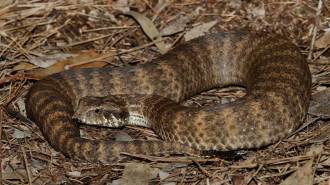 Animals
AnimalsScientists thought snakes didn’t have clitorises. They were wrong
Snakes were long thought to be the only reptile group to lack clitorises. But new findings suggest the sex organs are present after all.
-
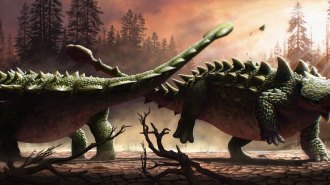 Paleontology
PaleontologyArmored dinos may have used their tail clubs to bludgeon each other
Broken and healed spikes on Zuul's flanks are consistent with the armored beast receiving a mighty blow from the tail club of another ankylosaur.
-
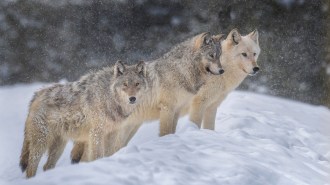 Life
LifeA parasite makes wolves more likely to become pack leaders
In Yellowstone National Park, gray wolves infected with Toxoplasma gondii make riskier decisions, making them more likely to split off from the pack.
-
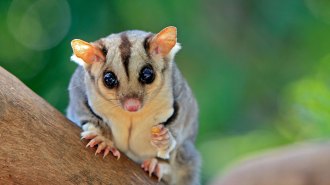 Animals
AnimalsLong considered loners, many marsupials may have complex social lives
Some marsupials may be more sociable than previously thought, opening the door to a possible deep legacy of social organization systems in mammals
-
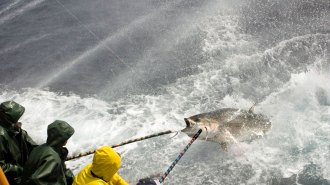 Oceans
OceansSharks face rising odds of extinction even as other big fish populations recover
Over the last 70 years, large ocean fishes like tuna and marlin have been recovering from overfishing. But sharks continue to decline toward extinction.
-
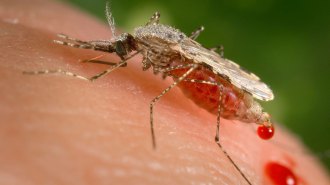 Health & Medicine
Health & MedicineA major malaria outbreak in Ethiopia came from an invasive Asian mosquito
Malaria may become a much bigger problem in Africa’s cities if the invasive mosquito continues to spread.
-
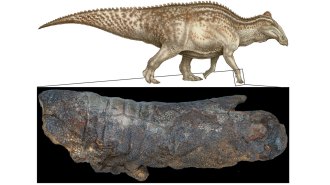 Paleontology
PaleontologyDinosaur ‘mummies’ may not be rare flukes after all
Bite marks on a fossilized dinosaur upend the idea that exquisite skin preservation must result from a carcass's immediate smothering under sediment.
-
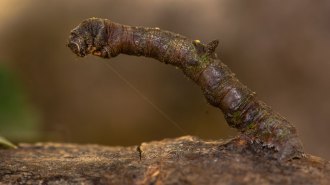 Life
LifeNot all camouflage is equal. Here are prey animals’ best options
When prey masquerade as innocuous objects in the environment, they slow detection from predators by nearly 300 percent.
-
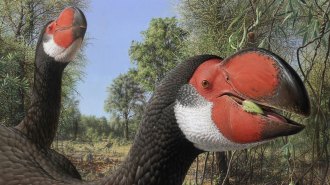 Life
LifeAncient ‘demon ducks’ may have been undone by their slow growth
Mihirung birds grew to more than half a ton and took their time getting there. That slow growth may have been a vulnerability when humans got to Australia.
-
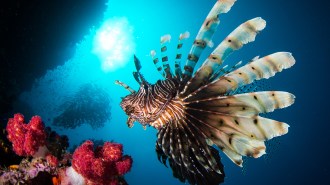 Animals
AnimalsHow slow and steady lionfish win the race against fast prey
Lionfish overcome speedy prey with persistent pursuit, waiting for the perfect moment to strike. Other slow predatory fish may use the technique too.
-
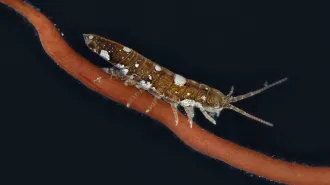 Life
LifeLike bees of the sea, crustaceans ‘pollinate’ seaweed
Crustaceans shuttle around red algae’s sex cells, helping the seaweed reproduce in a manner remarkably similar to flower pollination.
-
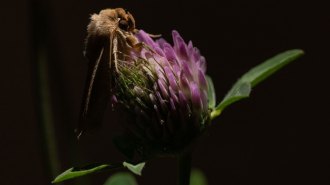 Life
LifeMoths pollinate clover flowers at night, after bees have gone home
Camera footage reveals that moths make roughly a third of the visits to red clover, highlighting the overlooked role of nighttime pollinators.